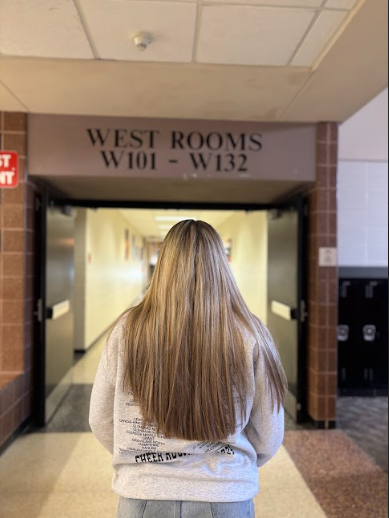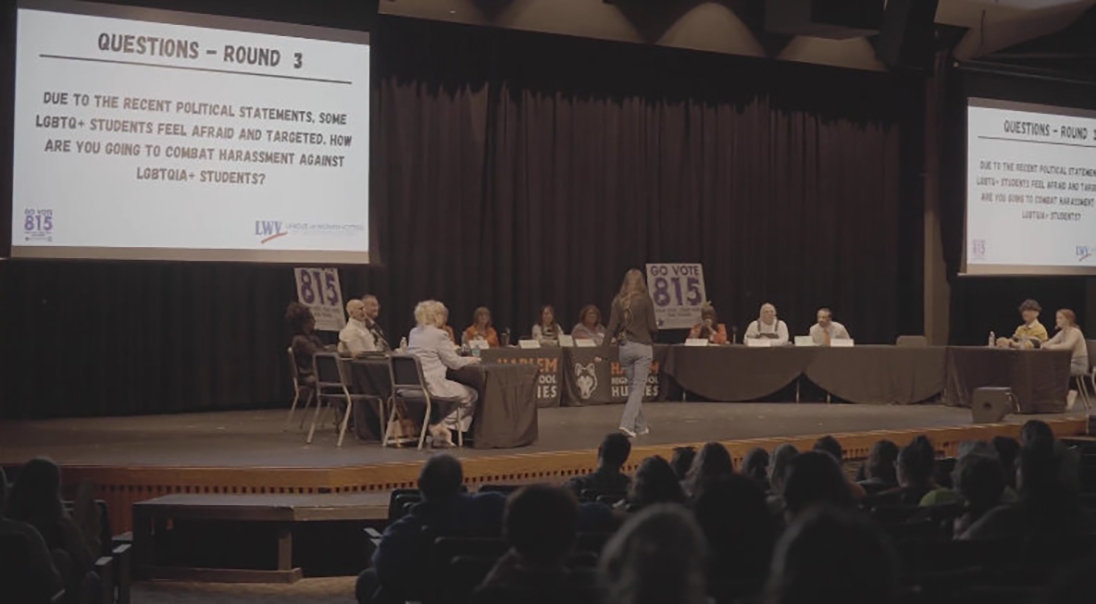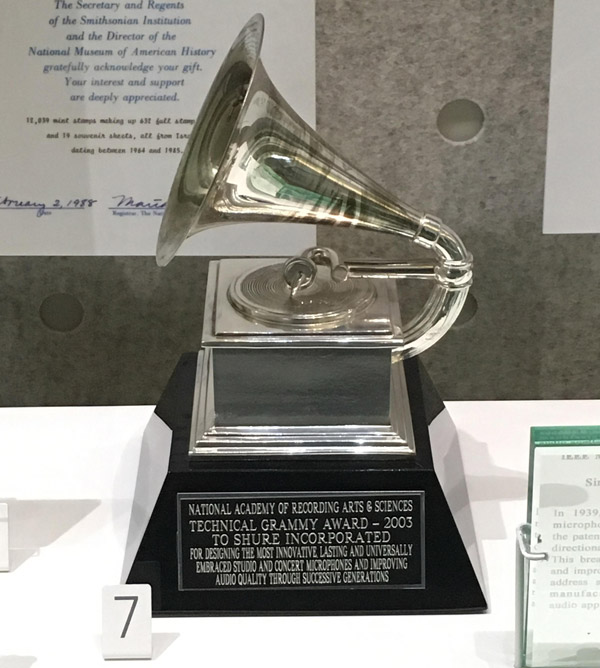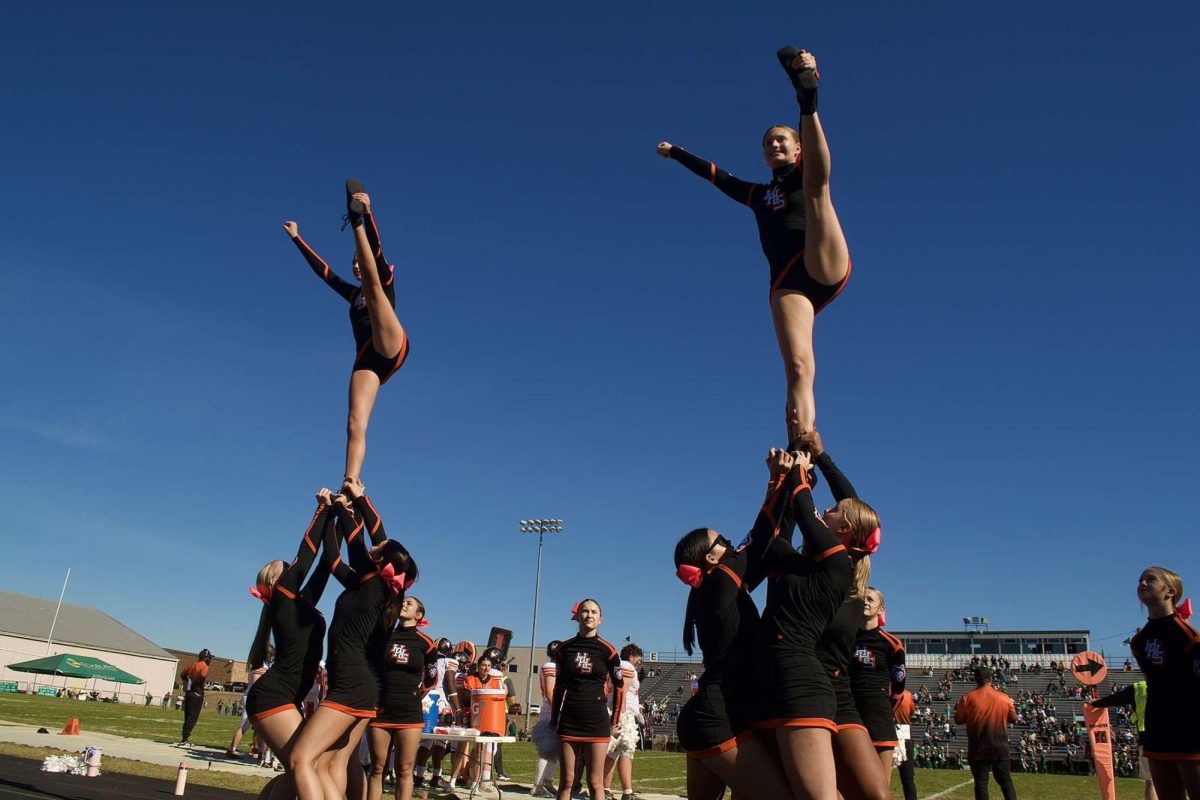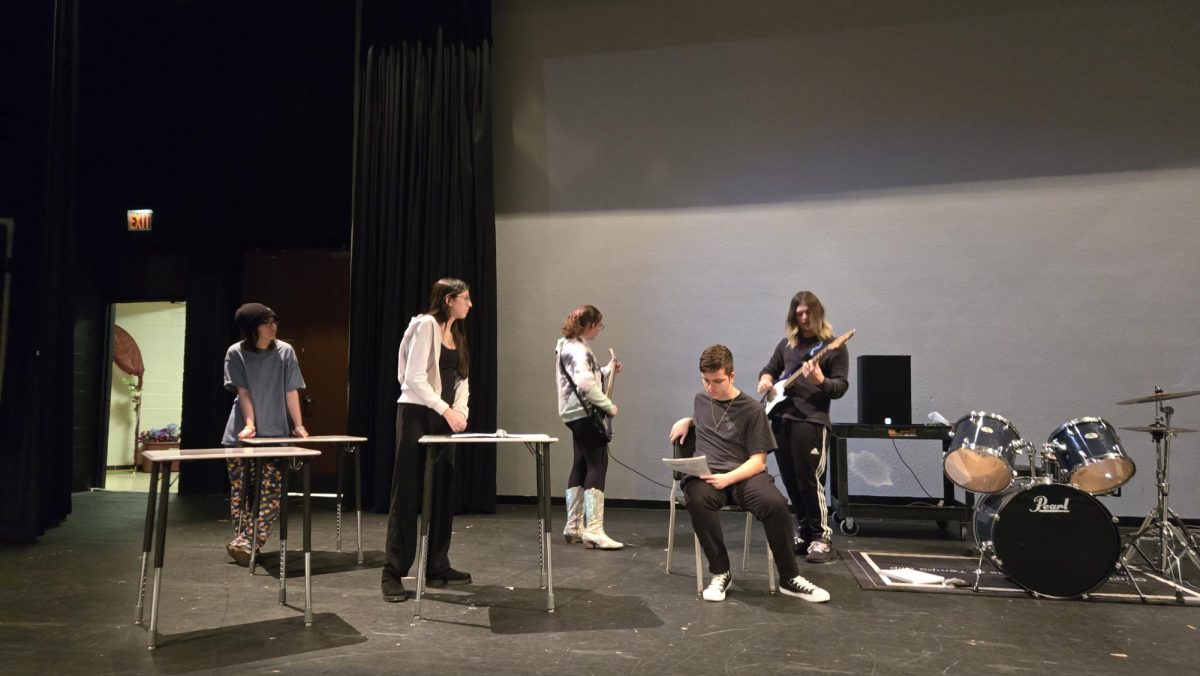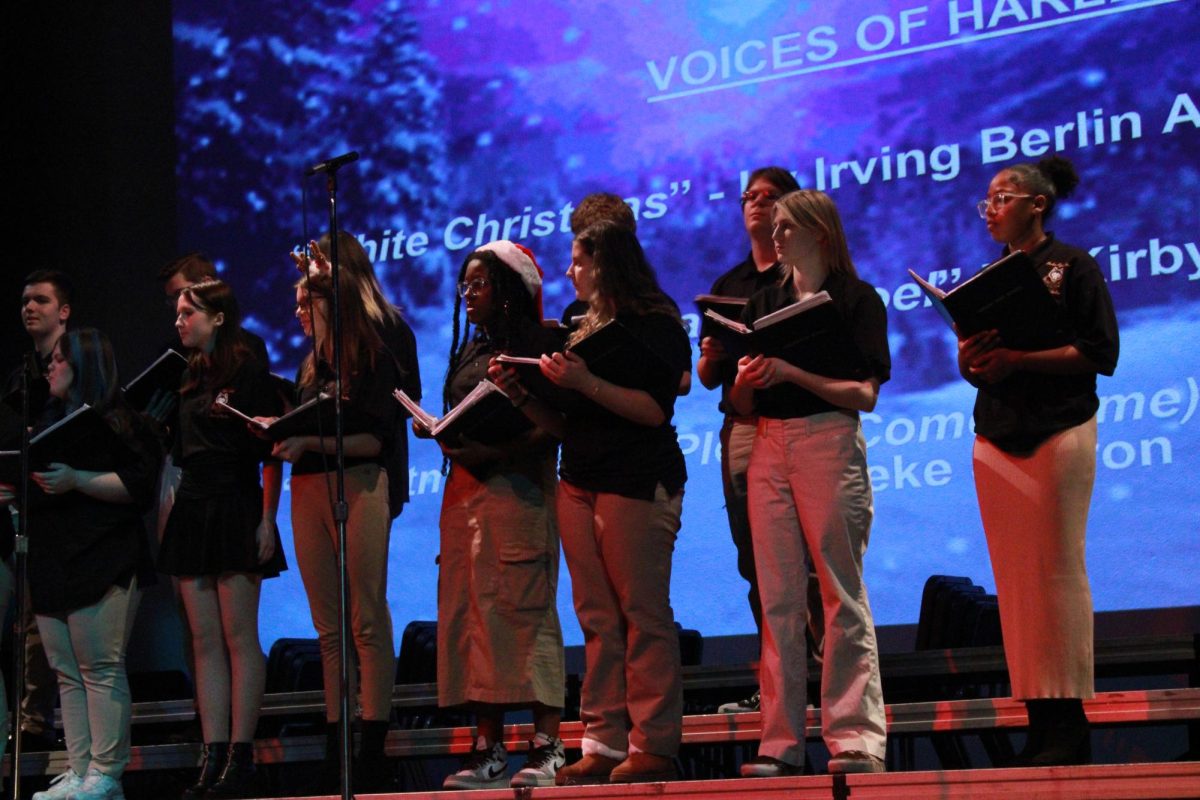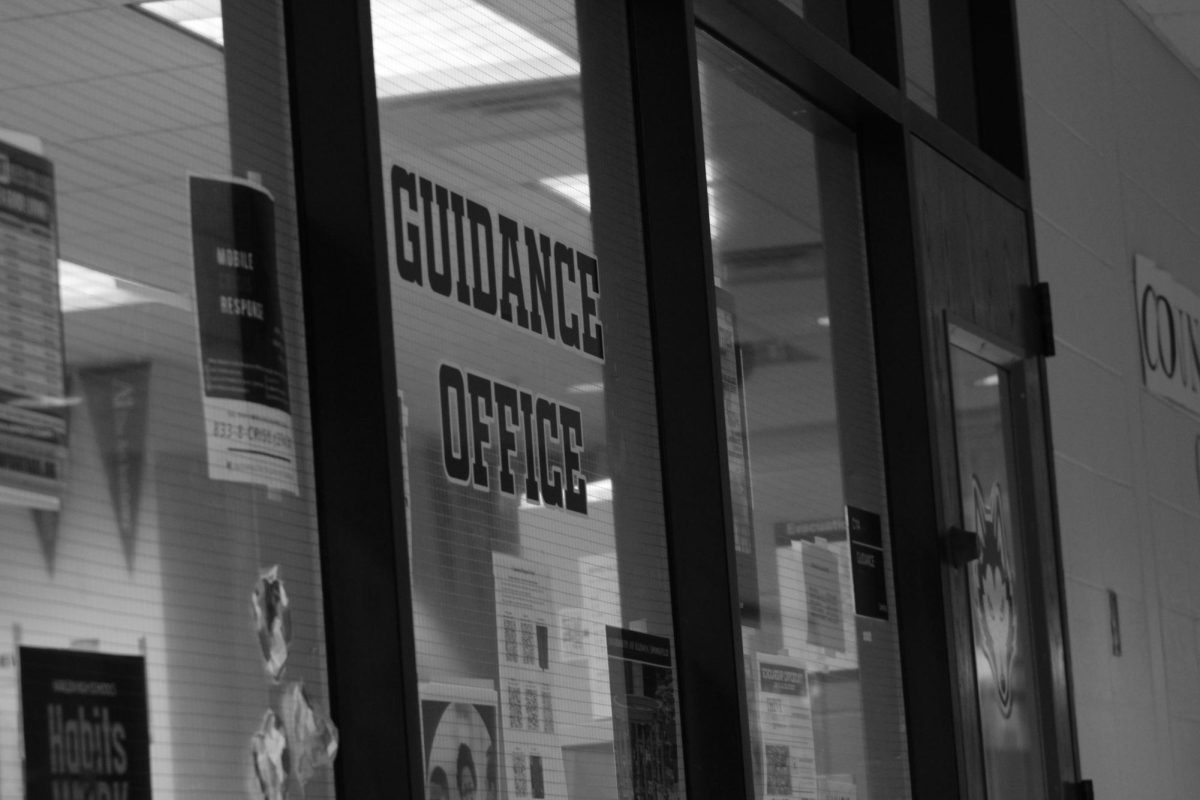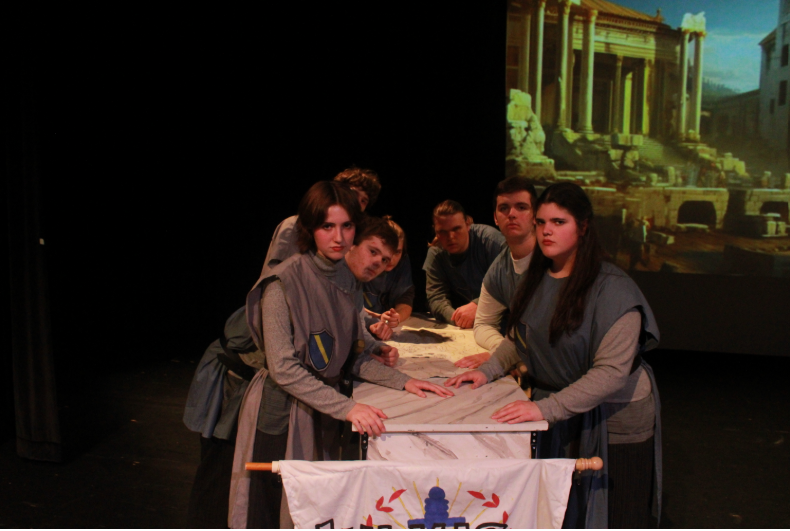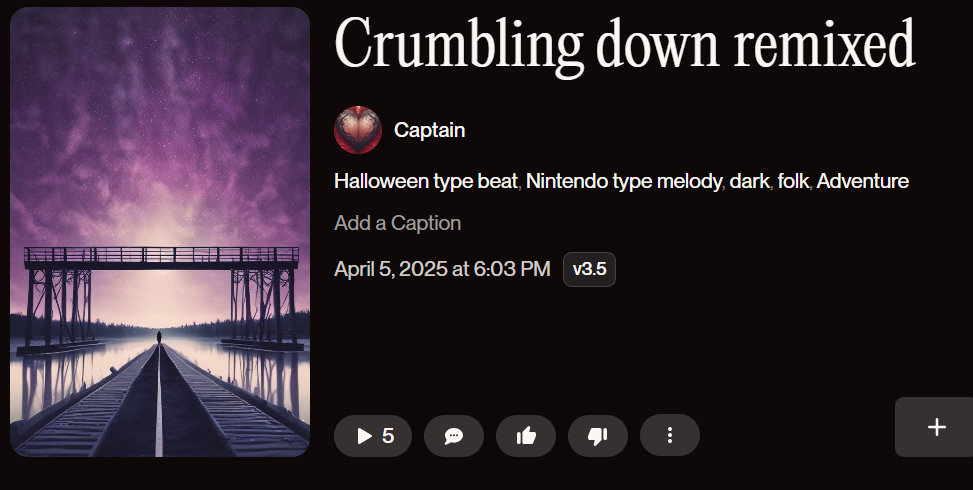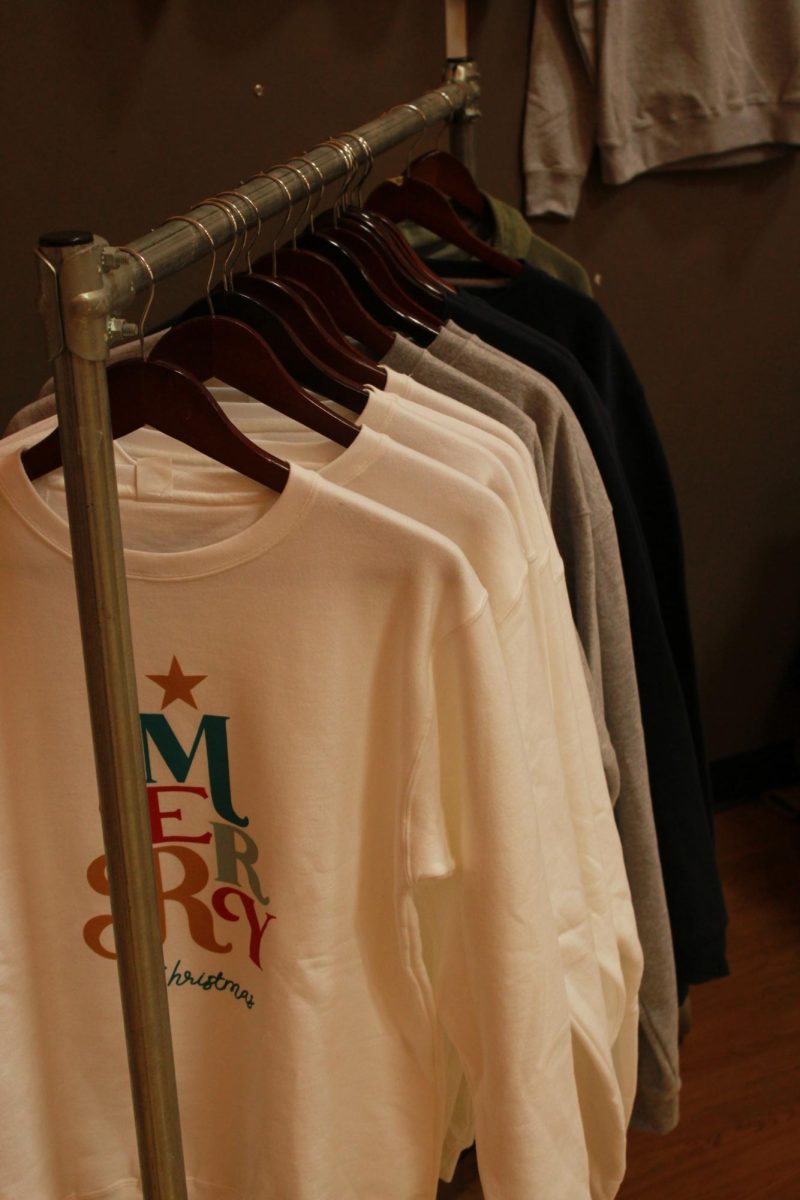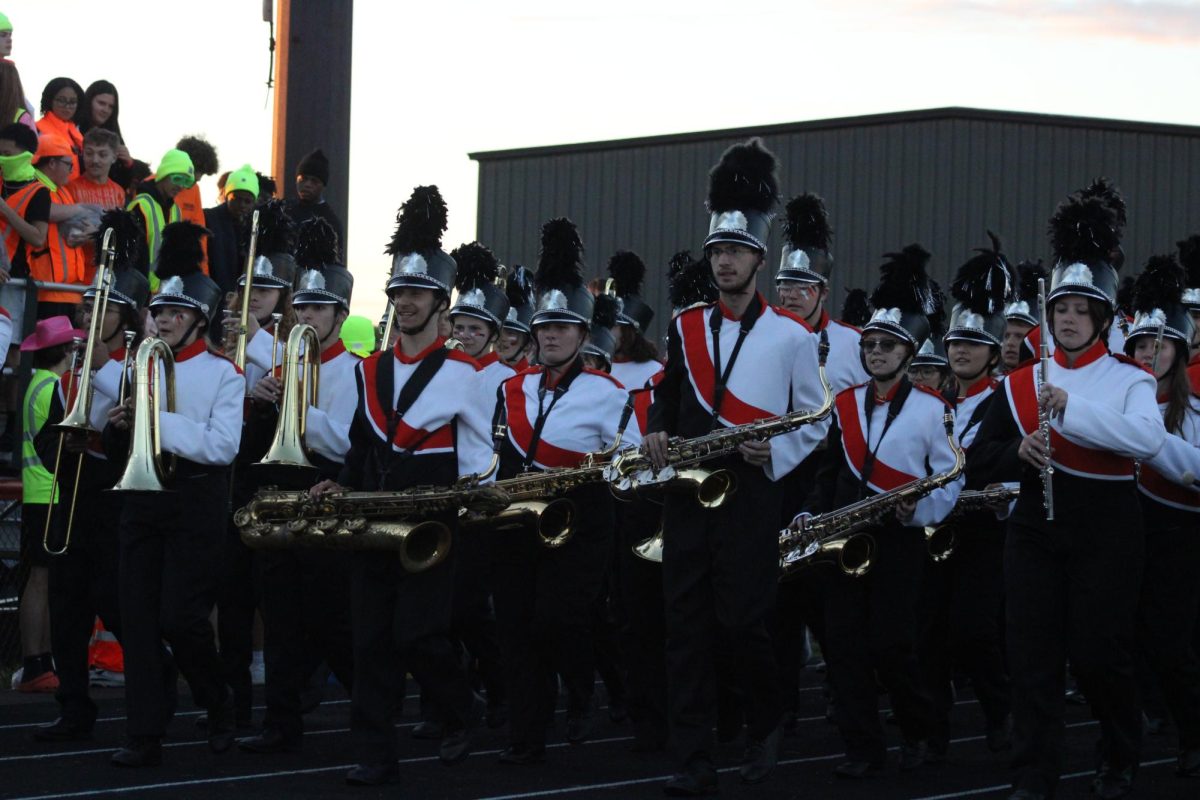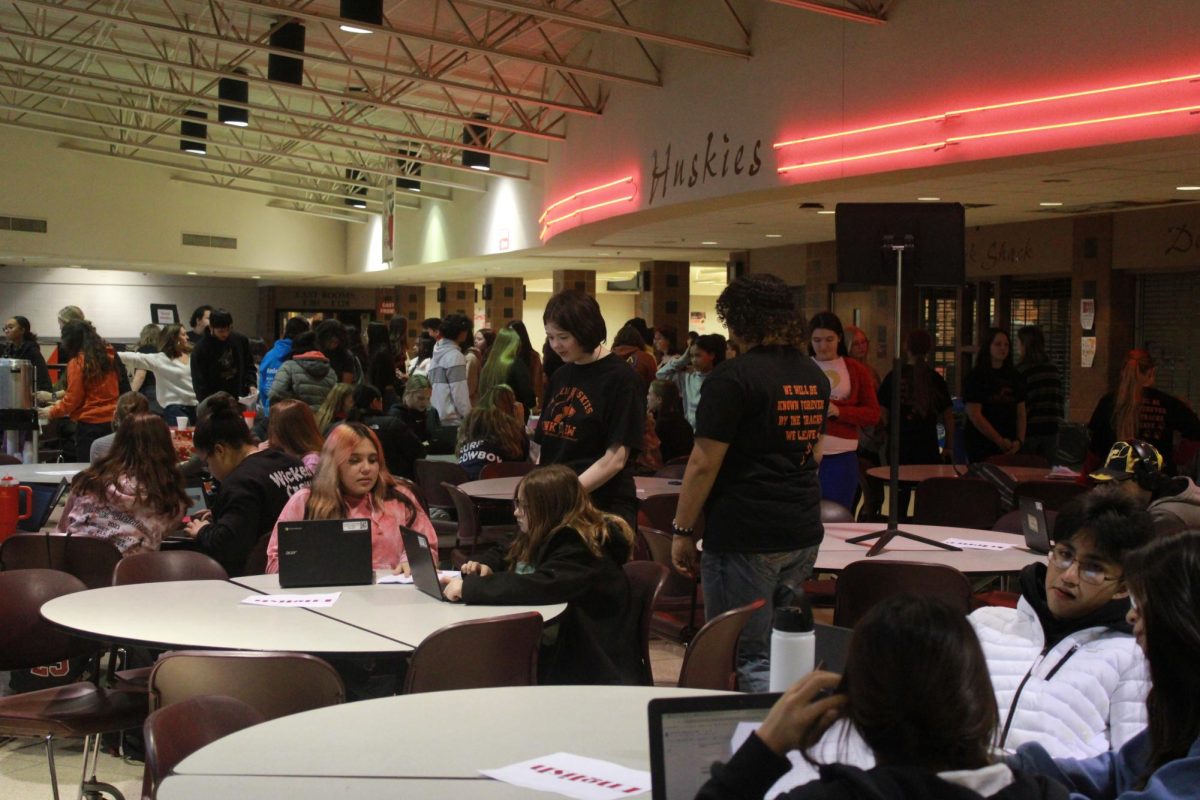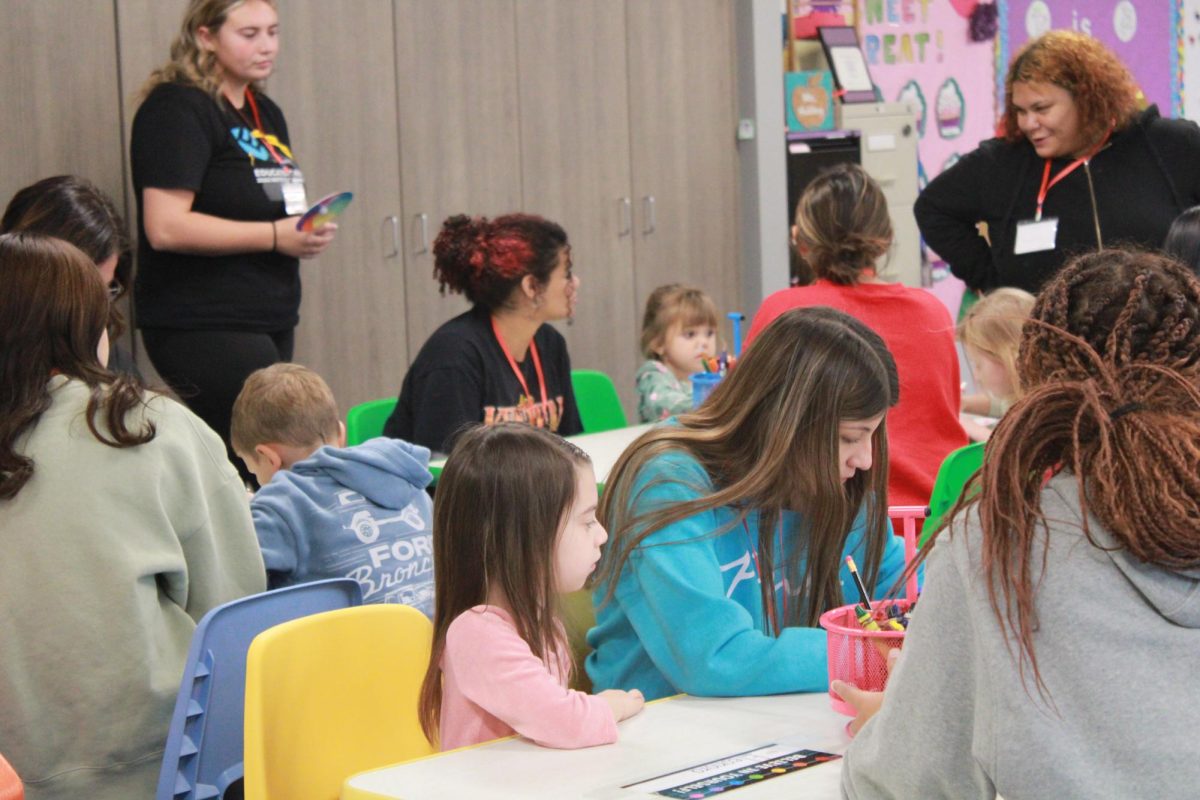“It was actually really nice as a past Harlem Student coming back and seeing another Shakespearean play was very nice to see and enjoy,” said Harlem Theatre alumni Kayleena Lopez.
Each year, the Harlem Theatre directors go through a specific process for the Harlem Theatre Department to produce four shows a year for audiences in the Harlem community. Throughout the entire school year, with having two fall shows, one musical, and one fundraiser show near the end of the school year. One of the shows performed for the 2024-2025 season was Shakespeare’s famous drama, Julius Caesar, performed on November 1 & 2 2024.
The first thing the Director Mr. Chris Engler has to do is, “[we] choose a show by looking at the theme, cast size, and if we have the kind of students of ages they have as well as the talent within the students.”
Once they have the show picked, Mr. Engler and Mrs, Engler goes into pre-production as well as getting the rights for the show; however, Mr. Engler wrote a adapted version of Julius Cesar easing the pre-production process. At this stage, the directors & producers Mr. Engler and Mrs. Engler begin to brainstorm with the students what is needed to bring the production to life: sets, costumes, lighting, sound, and projections.
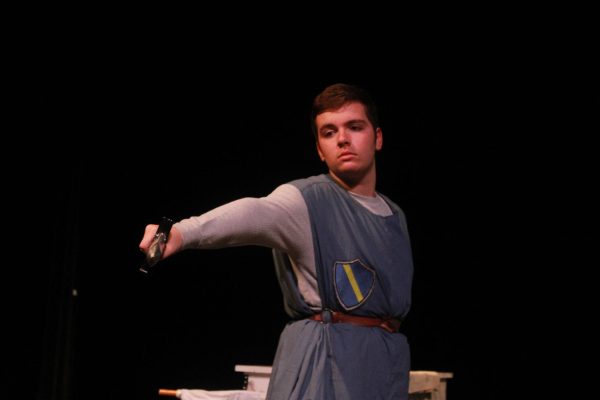
The next stage of the process is auditions. This is where the cast members audition to earn roles after performing their prepared monologue and song. Once the directors have casted the show, cast and crew start doing read throughs of the script to annotate and memorize lines.
“For the audition process of a show, we typically memorize part of a scene for the character we are aiming for, and choose a song to sing if it is a musical. We are able to audition with friends read a scene with to make it a little easier and fun. We go before the directors one group at a time and perform what we have prepared, said Gillian Nothnagel (11).
It may seem scary if you have not done it before, but everyone in the audition room is rooting for the performers and it’s actually really fun! Once the directors have casted the show, cast and crew start doing read throughs of the script to annotate and memorize lines during rehearsals In the beginning rehearsals, directors and actors figure out the blocking, which is where the director shows them how to move and they can start making character choices which is where the show starts to come together.
“We usually meet as a cast and discuss what our goal for that rehearsal is, and then we just roll with it and get as much done as we can! At the end of rehearsals, we usually do another full group discussion with notes and shout outs,” said Nothnagel. This is a very important thing so then when they hit their memorization deadline, they can start called tech runs.
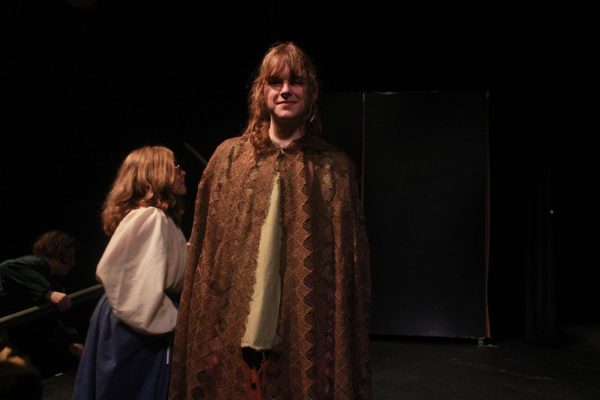
The magic of bringing the different the dimensions to the stage starts from the Crew. These are the students never seen on stage but make show flow very smooth. These students are able to experience building and painting all the sets, finding props, setting light cues and sound effects, & creating projections.
“During a typical tech run day, we start off with getting the stage set while the cast does vocal work and diction work. When the tech run starts, we are in good spirits and are very patient while the crew figures out what they need to improve and how to better themselves,” said Ethan Ecker(12).
The crew and cast start running the show with all the sets and tech involved in the show, some could be running spotlights, moving sets, helping costume changes, running the soundboard, and running the lightboard, as well as projections. This is also where the stage manager takes control and calls the show. They are the person who controls the flow of the show with communication to the whole cast and crew.
The very last stage in the theater process is tech week. This is the final week before a show which is where the week can become very stressful.
“Tensions are high, people get in each other’s way, you don’t sleep and eat well, and don’t take time to relax for yourself,” says Mr. Engler.
The stress of tech week helps work out any bumps in the show to have a perfect run opening night for audiences.
The unique aspect about this week is, at the end of all the rehearsals they would do shoutouts to celebrate the accomplishments of the cast and crew. This is where the other actors for at least 5 minutes, they are meant to: “Acknowledge their fellow cast members and crew people, and give thanks for all the hard work and cool things everyone does,” said Nothnagel.
“Without tech week, we wouldn’t be able to make the shows as fantastic as they are. We make A LOT and I mean A LOT of improvements during tech week because that’s when we start hitting the nitty gritty of stuff. Hell week is the week where we turn a good show into a great show,”said Ecker!
Through the triumphs of tech week, the Harlem Theatre play is ready for opening night.
The opening night performance is an electrifying experience, filled with a buzzing atmosphere and passionate, polished storytelling that draws you into the magic of live theater. As the audience and performers feed off each other’s energy, the night becomes a celebration of creativity and connection, leaving you feeling inspired and part of something unforgettable. As the performance comes to an end, audiences are left amazed at the performers dedication to Shakespeare’s Drama, Julius Caesar.
“I feel great and I am very proud of their fantastic show” said Mr. Engler.
“I feel like it went amazing and we had a great turn out and everyone did great,” said Nothnagel
For a person new to theater, stepping into this process—whether as a participant or observer—is transformative. Just as alumna Kayleena Lopez described her experience of returning to Harlem’s theater as “very nice to see and enjoy,” you too might find yourself inspired by the dedication, talent, and camaraderie that make every production a masterpiece. So now that you know what goes into creating a show, the question is: will you join the next Harlem production and experience the magic firsthand?

